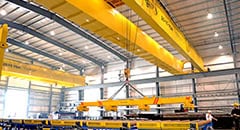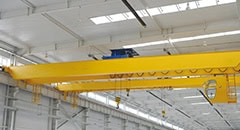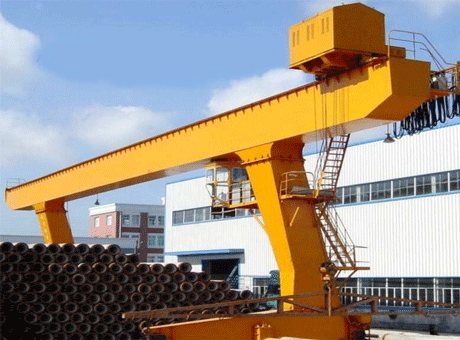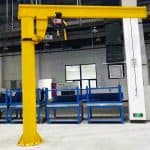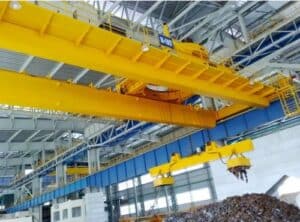Maintenance of Overhead Cranes
(1) Each contactor and the main and auxiliary contacts of the relay should be checked regularly. If any singeing occurs, they should be smoothed with fine sandpaper. If severe, they should be replaced. The anti-rust oil on the armature joint surface of the contactor should be wiped clean to prevent weak suction, noise or serious accidents.
(2) The action of the micro switch on the relay should be reliable, otherwise it should be corrected.
(2) The waterproof performance of outdoor electrical components of bridge cranes used in the open air should be checked regularly.
(4) Pay attention to check the heating condition of the resistor piece. If high temperature and redness are found locally, the resistor piece should be clamped and nailed tightly to reduce the contact resistance between the pieces.
(5) The wiring bolts of all electrical components should be tightly connected and reliably connected.
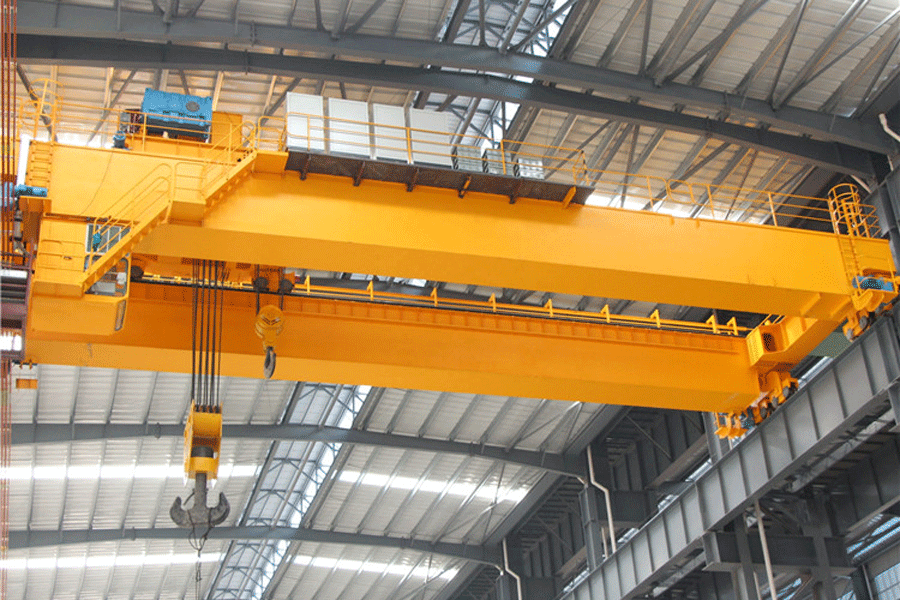
(6) All electrical components should be kept clean.
(7) The operation of the frequency converter should be checked frequently.
(8) In order to maintain the accuracy and reliability of the overload limiter, the oil stains and rust spots on the sensor and amplifier should be cleaned frequently, and the accurate performance of the overload limiter should be calibrated regularly.
(9) When the hydraulic push rod brake of the working mechanism is working, the lifting stroke of the push rod should reach half of the rated stroke of the brake by adjusting the screw rod to obtain smooth performance. At the same time, the compression amount of the spring should not be too large, in order to achieve safe parking. The adjustment stroke of the push rod of the lifting mechanism brake is 40 meters, and the amplitude is 30 meters.
Safety Technical Requirements And Precautions
(1) General requirements
1. Before taking over, check whether the lubricating oil is sufficient; check whether the wire rope, joints, and pulleys are intact, and whether the wire rope is in the pulley groove; check whether the safety devices and instruments are working normally; check whether the connections everywhere are loose. Check that the console handle and switch should be in the zero position. The brakes, hooks, wire ropes and overload limiters should be inspected. If abnormal performance is found, they should be eliminated before operation.
2. Turn on the main power switch, turn the voltage selector switch, and check whether the three-phase voltage is normal. Do not operate if it is higher than 420V or lower than 340V.
3. Close the control switch of the lighting switch box and the switches in each control cabinet. If everything is normal, you can start working.
4. Before operation, it is necessary to observe whether there are any abnormalities in the various mechanisms and structural parts of the machine, and whether there are any obstacles on the track. Then each mechanism operates without load, check whether the limits of each safety device are normal, and check whether the straightening brake is normal.
5. After the operation is completed, drive the crane to the designated location and drive the trolley to one end of the cab. Before leaving the machine, return the handle to zero and pull down all electronic control switches. Open the crane hook to the top, do good hygiene, keep records of the shift and take over the work, and close the doors and windows.
6. During the operation, you should: operate according to the command signal, carefully observe the working condition of the instrument, and if you find any abnormal noise or strange smell, you should stop the vehicle immediately for inspection. The hook must not touch the ground to prevent the steel wire rope from coming out of the pulley. The number of steel wire ropes on the drum must not be less than 3; when there are many changes in the air and cannot meet the operation requirements, you should take the initiative to contact the relevant departments and take measures. Concentrate your energy, operate carefully, see the gestures clearly, follow the hook with your eyes, look out of the corner of your eye, lift the hook steadily, and seek speed while being steady; the goods should be lifted vertically, and the goods should not be lifted too high, as long as they can overcome obstacles. When lifting long, large and heavy goods, the speed should be slow, and both ends of the goods must be pulled with safety ropes. If the operating temperature of the motor exceeds the specified value, it should be stopped for inspection. Operation can only be continued after the temperature drops to the allowable operating temperature. The electric whistle should be sounded when approaching people during operation. Stop immediately when any emergency stop signal appears.
7. When lifting heavy objects, the driver must obtain the command signal from the rigging operator before operating. The alarm must be sounded when the crane is started.
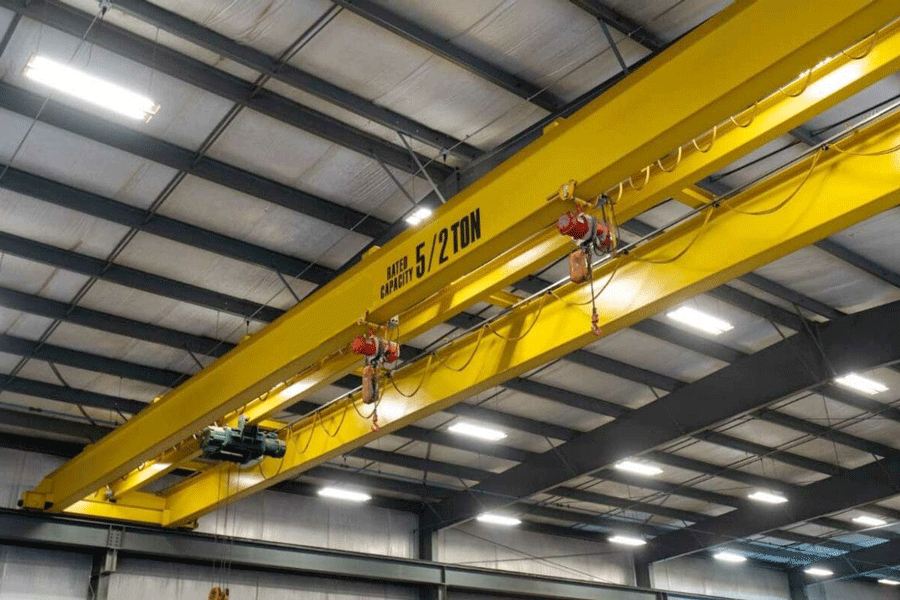
8. Start the car smoothly and accelerate gear by gear. The switching time of each gear of the lifting mechanism can be 1-2 seconds, and the switching time of each gear of the operating mechanism should be no less than 3 seconds. When driving with a large lifting capacity, the switching time between gears should be 6-8 seconds, depending on the lifting capacity. High-speed starting is strictly prohibited. The control handle should first be turned from the “0” position to the first gear, and then increase or decrease the speed step by step. When changing direction, it must first turn back to the “0” position. When lifting heavy-tonnage objects, you should first try lifting them slightly off the ground to make sure that the hoisted objects are stable, secure, and well braked before they are allowed to rise and run slowly. It is not allowed to perform three or more institutional actions at the same time. The hook is not allowed to rise when it is rotating to prevent the wire rope from coming out of the groove.
9. When approaching the limit, when the cart approaches the terminal or meets a nearby cần cẩu trên không, the speed should be slow. It is not allowed to use reverse instead of braking, limit position instead of parking, and emergency switch instead of ordinary switch.
10. When there is a sudden power outage during work, the handle should be returned to the zero position. In case of long-term power outage, the goods should be dropped to the ground.

